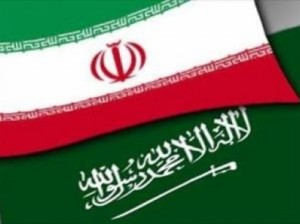 A political analyst says Saudi Arabia is destabilizing the Middle East as it is fearful of Iran’s rising role in the region, Press TV reports.
A political analyst says Saudi Arabia is destabilizing the Middle East as it is fearful of Iran’s rising role in the region, Press TV reports.
“Saudi Arabia feels a bit threatened by this possibility of an American-Iranian breakthrough on its hegemonic role in the region and the prospects of rise of Iranian role,” Jamal Wakim from the Lebanese International University of Beirut said on Friday.
He added that the violence in Iraq cannot be separated from the developments in Syria, Lebanon, Yemen and even the interim deal reached between Iran and six major world powers over the Iranian nuclear energy program.
“So that is why it [Saudi Arabia] is instigating troubles to the Syrians, to the Iraqis and even to the Lebanese who are considered as allies of Iran in the region. So destabilizing the situation in [Iraq] falls in this context,” the commentator stated.
Iran and the five permanent members of the UN Security Council - Britain, China, France, Russia and the United States - plus Germany sealed an interim agreement in Geneva on November 24 to lay the groundwork for the full resolution of the decade-old dispute with Tehran over its nuclear energy program.
Under the Geneva deal, the six countries undertook to provide Iran with some sanctions relief in exchange for Tehran agreeing to limit certain aspects of its nuclear activities during a six-month period.
Wakim further noted that the recent wave of violence in Iraq benefits the Saudis, mainly Bandar bin Sultan(the Saudi spying chief), who seeks to target all those that he considers as Iranian allies in the region, including Iraqi Prime Minister Nouri al-Maliki.
The Iraqi premier had refused to support the terrorists in Syria and to throw his weight behind the Saudis regarding their stance towards the Syrian crisis, he noted.
“So that is why they (Saudis) thought of destabilizing the situation in Iraq maybe to pressure him (Maliki) to make concessions and fall into their trap by supporting the insurgents in Syria,” the analyst pointed out.
Iraq has seen a surge in violence since the beginning of last year.
The United Nations says at least 8,000 people lost their lives in Iraq in 2013.
By Press TV
The Iran Project is not responsible for the content of quoted articles.

 QR code
QR code